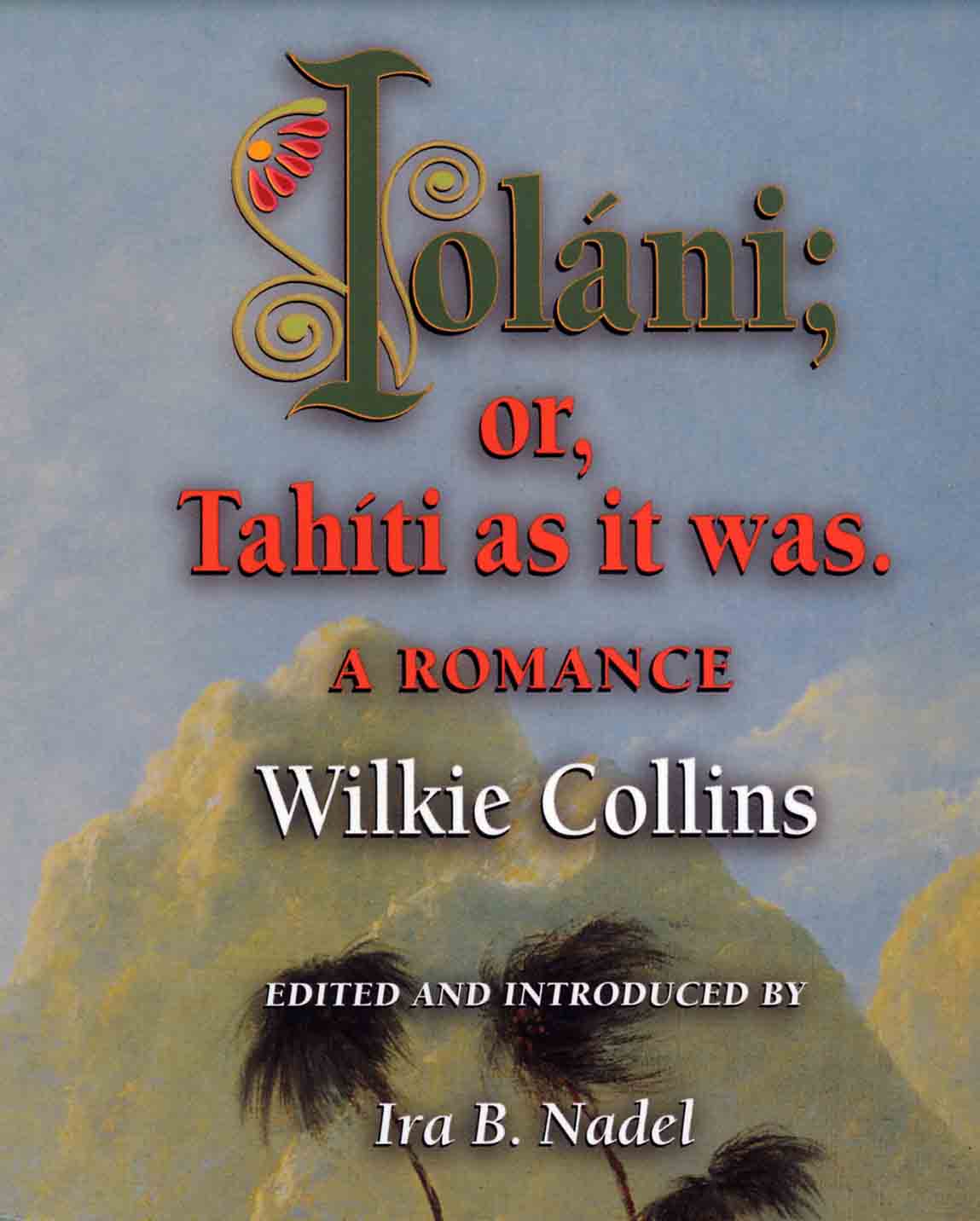
The first published edition of Iolani in 1999
Collins's first novel, unpublished during his lifetime.
Iolani was written during 1844 while he was employed by Antrobus
& Co in the Strand. In 1845 it
was submitted to Longman's who initially considered publishing it on condition
that Collins's father would cover the costs.
The manuscript was subsequently declined by Chapman & Hall and
other London publishers. Collins
Later recalled in Appleton's Journal (3 September 1870) that his
'youthful imagination ran riot among the noble savages, in scenes which caused
the respectable British publishers to declare that it was impossible to put
his name on the title-page of such a novel.'
The manuscript was later given to Augustin Daly, probably in 1878, and
taken to America. In 1900 it was
bought at the sale of Daly's library by book dealer George D. Smith for $23
and resold to Howard T. Goodwin, a Philadelphia collector, for $100.
After his death in 1903, Iolani was sold at auction to Joseph M.
Fox 'a gentleman and cricketer of note.' It
remained with the Fox family until re-emerging in New York during 1991.
Iolani has now been published by Princeton University Press
(edited by Ira B. Nadel).
The main source for Iolani was William Ellis' Polynesian
Researches (second edition, 4 vols, London 1831-1832) present in Collins's
library. He borrowed the names of
the four principal characters, Iolani, Aimata, Idia and Mahine, citing
Tahitian pronunciation, marriage customs, scenic descriptions and the practice
of infanticide which provides the key issue for the novel.
Other possible sources were Mary Russell Mitford's Christina, The
Maid of the South Seas (1811), Barrow's Account of the Mutiny of the
Bounty (1831) and Hall's Fragments of Voyages and Travels (1831).
The character of Iolani foreshadows the pagan priest, Ulpius, in
Collins's next novel, Antonina (1850); whereas Aimata reappears in
'The
Captain's Last Love' (1876).
Iolani, the evil High Priest of Oro and brother of the King, fathers a
child by Idia. To avoid the local
custom of putting the firstborn to death, Idia flees with the help of her
courageous young friend, Aimata, to another part of the island where they live
under the protection of the local chieftain, Mahine.
When war is declared between Mahine and the King, Iolani declares Idia as
the next human sacrifice. She goes
into hiding with Aimata but they are captured by Iolani who leaves the child to
die in the woods. Idia is saved at
the point of sacrifice by Mahine's warriors and the King is defeated in a
bloodthirsty battle. The wounded Iolani
and his brother are exiled to an outlying island while Idia returns to the woods
in search of her child. The infant
has been saved by an outcast wildman, another victim of Iolani's treachery.
Mahine marries Aimata and while blissfully happy neglects his duties as the new leader. Iolani escapes from exile and enlists the aid of Otahara, a sorcerer, who poisons Idia with herbs. Aimata and Mahine return to Tahiti to find the dying Idia whose final wish is for Aimata to bring up the child. The warriors, tired of Mahine's indolence, plan to assassinate him and bring back the banished King. Mahine and Aimata escape by canoe to live peacefully in exile while Iolani eventually kills Otahara in an argument. The priest is watched by the now totally deranged wildman who takes his own revenge. He forces the tightly bound Iolani into a leaking canoe with him and they sail off into an impending storm to their certain death at sea.
Horowitz, G. [Bookseller], Wilkie Collins: Iolani; or Tahiti as it
was; A Romance: The Original Autograph Manuscript, New York [1991]
[Top of Page] [Main Works] [Front Page]